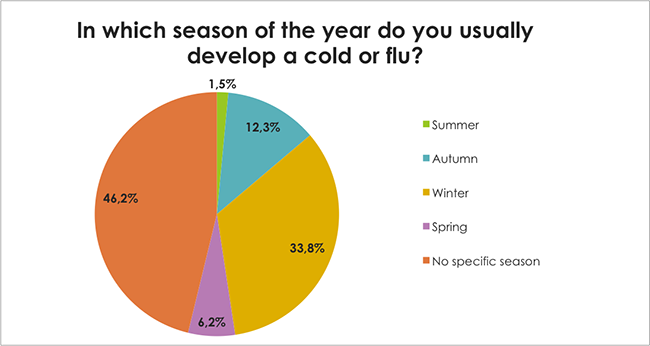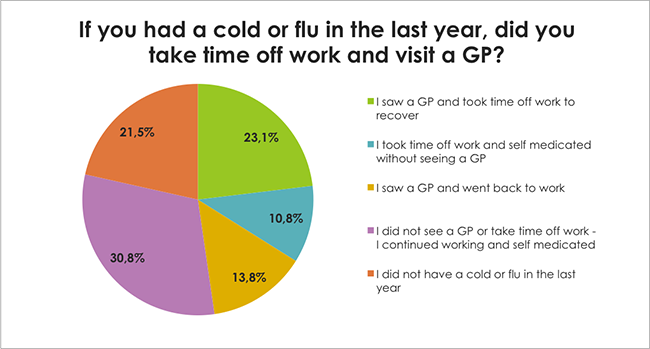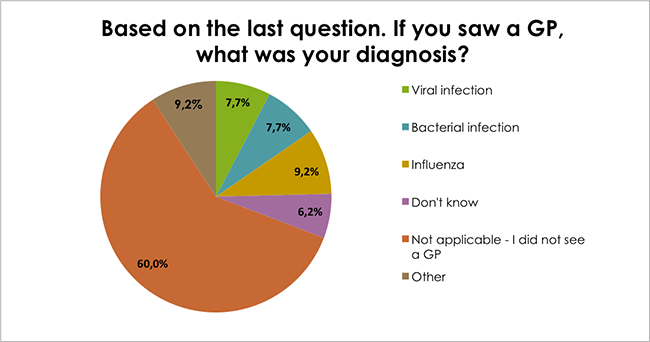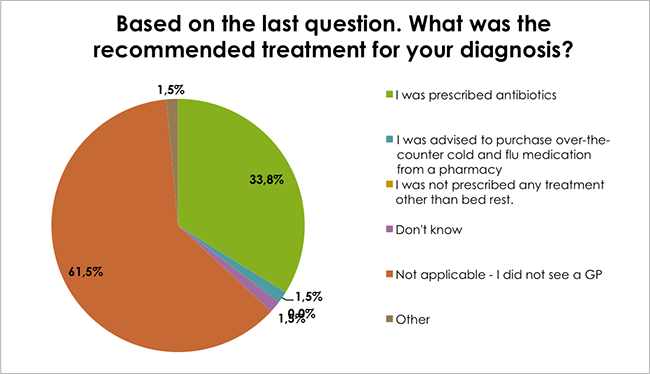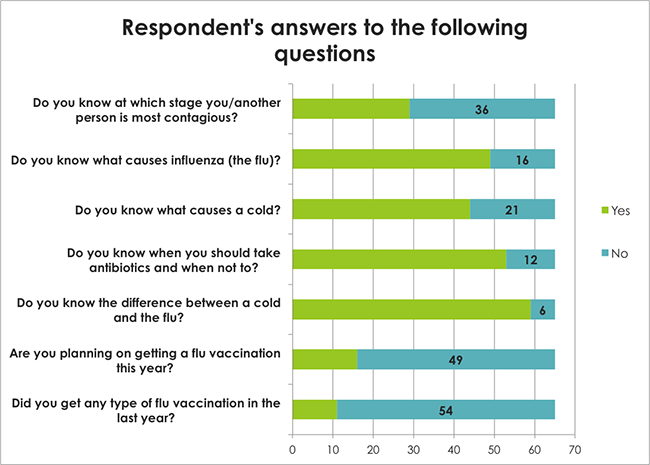It is no surprise that most respondents develop colds and flu during Autumn and Winter. It's important to know the difference between flu and cold symptoms. Thankfully 90.8% of respondents know what the difference between a cold and flu is.

- Vaccination
The most effective and least expensive method for preventing influenza. Vaccination does however not guarantee flu prevention. 16.9% of the respondents got vaccinated last year and 24.6% said they will be getting this year.How can one prevent getting or spreading a cold or flu?
- Good hygiene -
- Wash or sanitize hands regularly
- Clean all linen, equipment, appliances, eating utensils and dishes with soap and water when used by someone that is sick
- Cover your coughs, sneezes with a tissue
- Avoid touching your eyes, nose and mouth
- Conventional treatment
Over the counter medicines and anti-viral drug therapy which aim to relieve symptoms such as aches and fever, and prevent complications. Colds and flu are caused by viruses and not bacteria, thus it’s not recommended to use antibiotics as it could lead to unwanted side effects or become antibiotic resistant in future. However, out of the 36.9% of respondents who saw a GP, 33.8% were prescribed antibiotics.
- Natural interventions – nutraceuticals help to prevent infection or ease flu symptoms.
- Vitamin D
- Vitamin C
- Zinc
- Selenium
- Vitamin E
- Lactoferrin
- Elderberry
- Green tea
- Beta-Glucans
- Andrographis
- Probiotics
- Reishi
Read more about influenza
Results:
